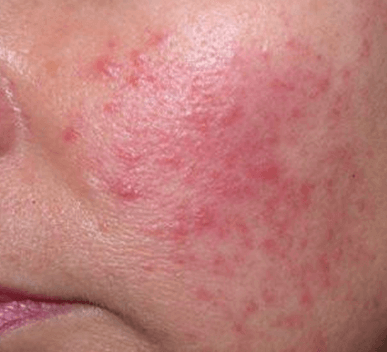Your dermatologist may prescribe oral and topical antibiotics to manage rosacea. Because the presentation, severity, and triggers for rosacea vary amongst patients, your dermatologist will tailor your treatment regimen to your individual needs. Oral antibiotics in pill form may be used along with a topical regimen as the first course of treatment to bring the rosacea under control and minimize flares. Long-term use of oral antibiotics may cause side effects, including nausea and gastrointestinal problems, therefore the goal of treatment is to find a topical regimen of medications applied directly to the affected skin areas to keep the symptoms under control. Identifying and minimizing exposure to your personal triggers is another key factor. Compliance with the treatment plan is important for long term success in rosacea treatment.
If you have skin lesions that are concerning for rosacea, click here to schedule an appointment with our board-certified dermatologists or walk into Walk-in Dermatology at your convenience for your evaluation.







